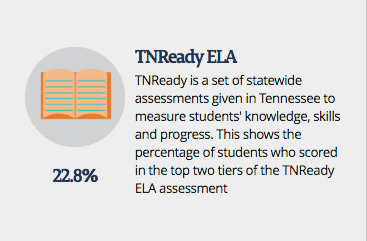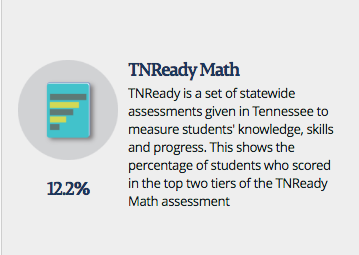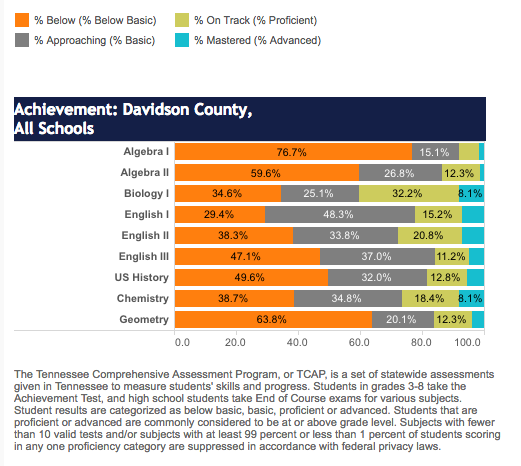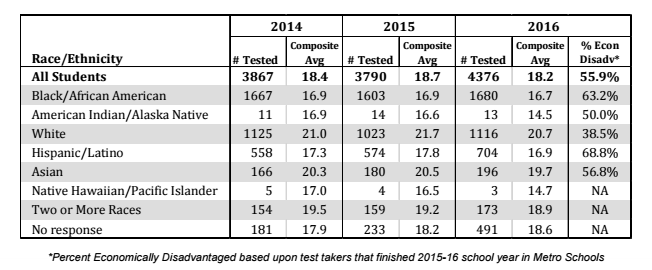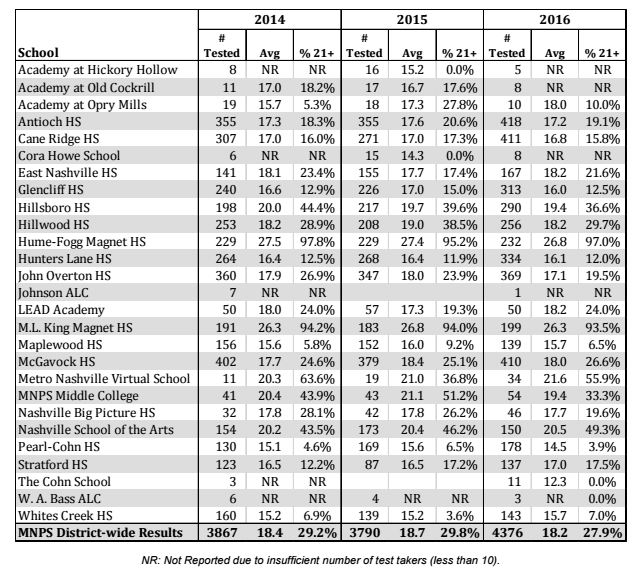Last night, the Knox County School Board voted 6-3 in favor of a resolution calling on the General Assembly and State Board of Education to waive the use of TCAP/TNReady data in student grades and teacher evaluations this year.
The move comes as the state prepares to administer the tests this year with a new vendor following last year’s TNReady disaster. The lack of a complete testing cycle last year plus the addition of a new vendor means this year is the first year of the new test.
The Board passed the resolution in spite of Governor Haslam warning against taking such a step.
In his warning, Haslam said:
“The results we’ve seen are not by accident in Tennessee, and I think you have to be really careful about doing anything that could cause that to back up,” Haslam said.
He added:
Haslam attributed that progress to three things, including tying standardized tests to teacher evaluations.
“It’s about raising our standards and expectations, it’s about having year-end assessments that match those standards and then I think it’s about having assessments that are part of teachers’ evaluations,” Haslam said. “I think that you have to have all of those for a recipe for success.”
Haslam can present no evidence for his claim about the use of student assessment in teacher evaluation. In fact, it’s worth noting that prior to 2008, Tennessee students achieved at a high level according to what were then the state standards. While the standards themselves were determined to need improvement, the point is teachers were helping students hit the designated mark.
Teachers were moving students forward at this time without evaluations tied to student test results. Policymakers set a mark for student performance, teachers worked to hit that mark and succeeded. Standards were raised in 2008, and since then, Tennessee has seen detectable growth in overall results, including some exciting news when NAEP results are released.
To suggest that a year without the use of TVAAS scores in teacher evaluations will cause a setback is to insult Tennessee’s teachers. As if they’ll just relax and not teach as hard.
Another argument raised against the resolution is that it will somehow absolve teachers and students of accountability.
Joe Sullivan reports in the Knoxville Mercury:
In an email to board members, [Interim Director of Schools Buzz] Thomas asserted that, “We need a good standardized test each year to tell us how we are doing compared to others across the state and the nation. We will achieve greatness not by shying away from this accountability but by embracing it.” And he fretted that, “This resolution puts that at risk. In short, it will divide us. Once again we could find ourselves in two disputing camps. The pro-achievement folks on the one side and the pro-teacher folks on the other.”
Right now, we don’t know if we have a good standardized test. Taking a year to get it right is important, especially in light of the frustrations of last year’s TNReady experience.
Of course, there’s no need for pro-achievement and pro-teacher folks to be divided into two camps, either. Tennessee can have a good, solid test that is an accurate measure of student achievement and also treat teachers fairly in the evaluation process.
To be clear, teachers aren’t asking for a waiver from all evaluation. They are asking for a fair, transparent evaluation system. TVAAS has long been criticized as neither. Even under the best of circumstances, TVAAS provides a minimal level of useful information about teacher performance.
Now, we’re shifting to a new test. That shift alone makes it impossible to achieve a valid value-added score. In fact, researchers in the Journal of Educational Measurement have said:
We find that the variation in estimated effects resulting from the different mathematics achievement measures is large relative to variation resulting from choices about model specification, and that the variation within teachers across achievement measures is larger than the variation across teachers. These results suggest that conclusions about individual teachers’ performance based on value-added models can be sensitive to the ways in which student achievement is measured.
These findings align with similar findings by Martineau (2006) and Schmidt et al (2005)
You get different results depending on the type of question you’re measuring.
The researchers tested various VAM models (including the type used in TVAAS) and found that teacher effect estimates changed significantly based on both what was being measured AND how it was measured.
Changing to a new type of test creates value-added uncertainty. That means results attributed to teachers based on a comparison of this year’s tests and the old tests will not yield valid results.
While insisting that districts use TVAAS in teacher evaluations this year, the state is also admitting it’s not quite sure how that will work.
From Sullivan’s story:
When asked how these determinations will be made, a spokesperson for the state Department of Education acknowledges that a different methodology will have to be employed and says that, “we are still working with various statisticians and experts to determine the exact methodology we will use this year.”
Why not at take at least a year, be sure there’s a test that works, and then build a model based on that? What harm would come from giving teachers and students a year with a test that’s just a test? Moreover, the best education researchers have already warned that testing transitions create value-added bumps. Why not avoid the bumps and work to create an evaluation system that is fair and transparent?
Knox County has taken a stand. We’ll soon see if others follow suit. And if the state is listening.
For more on education politics and policy in Tennessee, follow @TNEdReport

